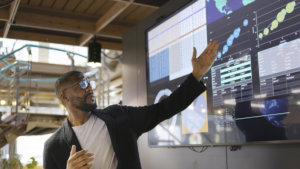Five Eyes Alliance: Everything you need to know

Five Eyes, abbreviated FVEY, is a conglomeration of five states including the UK, USA, Canada, Australia, and New Zealand. This conglomerate works as a spying force that works closely together to collect mass surveillance data and share it with the relevant parties. FVEY is not controlled by any government and, therefore, has the power to spy on citizens of the member states. This act only grants the alliance privacy, rather than its citizens.
This alliance was formed right after the Cold War era, rising out of an intelligence pact known as UKUSA. Originally, it was an intelligence-sharing agreement between the USA and the UK purposed to decrypt Soviet Russian intelligence. Towards the late 50s, Australia, Canada, and New Zealand joined the conglomerate. The intelligence-sharing agreement between the five English-speaking nations has only strengthened over the years. Lately, the alliance has heightened the surveillance of online activity.
The Five Eyes gave rise to other alliances, namely: Nine Eyes and Fourteen Eyes. Member states of the nine eyes include the Five Eyes’ nations plus Denmark, Netherlands, France, and Norway. On the other hand, the Fourteen Eyes alliance consists of countries in the Nine Eyes alliance plus Germany, Italy, Belgium, Spain, and Sweden. All alliances actively share on matters of international intelligence even though their relationships may not be as tight as that of the countries in the five eyes.
Since the Five Eyes Alliance is all about monitoring the online activities of internet users, there is a need for users to keep their online sessions safe. It is most likely that any of these nations share your data to the rest once they gain access to it. There is, therefore, a strong urge for online users to take security measures and collaborative security whenever they are browsing the internet. Equipping their devices with a strong VPN is a good mitigation step against online spying. Get to know the various VPNs you can use.
Controversies surrounding the Five Eyes Alliance
Before 2003, very little about the Five Eyes Alliance was known to the public. Things got clearer in 2013 when a former NSA contractor, Edward Snowden, leaked some documents connected to the Five Eyes alliance. These documents brought to light the widespread surveillance of the public’s online activities by this alliance. It also became clear that the intelligence-sharing alliance is more extensive than expected.
The Five Eyes alliance operates out of government jurisdiction and control, making it very hard to trace their activities. One Prime Minister of Australia, Gough Whitlam, at one time, confessed that he was unaware of the existence or operations of this alliance. Controversy erupted recently after Canada, and the other members of the Five Eyes alliance released a report indicating that they were ready to sacrifice the online privacy of the public in a bid to increase security.
It was also anticipated that the alliance was about to mount pressure on software and telecom companies to come up with ways of overcoming encryption. The statement released further indicated that all the countries of the alliance agreed to the need for the formation and enforcement of laws to gain access to specific data. These laws would be subject to strict safeguards, domestic consultations, and legal limitations.
How can people protect themselves online?
With the increased spying activities by third parties to acquire data from the public, there is a need for users to protect themselves whenever they are online. Here are a few tips for users to stay safe when online:
1. Use a good VPN
Apart from granting access to geographically restricted content, VPNs are also vital in encrypting the traffic that is transmitted to and from our devices. This is key to the safety of any user, as you’re the movement of your data cannot be traced by third parties, making it impossible for them to intercept it. VPNs also help online to stay anonymous and conceal their locations. In that case, third parties who target data from users in a particular location are not able to access your data.
2. Install a web application firewall or antivirus
It is important to have a piece of software that protects your device against malicious files or software. Firewalls are also important for barring malicious users, especially when you are connected to a network with other users. These are the avenues spies exploit to acquire data unethically from other users. Antivirus software is also important for the protection of your devices against infection by malicious files and software.
Conclusion
In a world filled with attackers and malicious users, it is almost impossible to survive without taking protective measures. Some of the best ways of fending off third parties who acquire data from users unethically include using strong protection software such as VPNs. Failure to take measures towards data security, your online privacy at risk.



